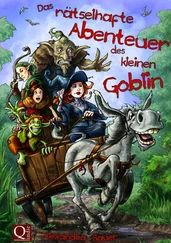Karen saw a text message on her phone. It was from Martin. She could see the shadow he cast in the thin slit of light coming from under the front door. He was still there, pacing back and forth. She never wanted to see him again. Martin had experienced only one truly uncivil encounter in the history of his romantic life. In college, a girl he had been sleeping with and whom he liked very much had stopped calling him and then stopped talking to him in the halls. When he saw her in the university buildings, she walked by him not as though he were a stranger, but as though he were not there at all. Later a friend told him she had spread the rumor that he cheated on her with someone from his economics class. This was not only false, but mystifyingly so. Martin knew nobody in his economics class. He couldn’t even name one female who took the class with him. The situation was bizarre, the girl’s behavior inexplicable. This experience impressed upon Martin the view that most women were unknowable. As he said: “Women will sometimes burn a thing just to watch it burn.” Although he was occasionally lonely, he tried not to be bitter. He thought there were good things in the world that he would encounter by chance. He was only thirty-five, and he believed it would happen whether or not he changed himself significantly.
Karen went back to her room and closed the door. There was very little light now coming in through the bedroom window. She climbed the ladder up to her bed and wrapped herself in the duvet. She slept in a lofted bed, like a child. She was always afraid that she would roll off it in the middle of the night and break her neck on her own bureau dresser. This fear woke her sometimes, and she’d stretch out her arm to feel for the end of the bed before rolling her body inward to where the mattress met the wall. A psychology graduate student that Karen had met at a party listened to her description of the milk calf weaning and became excited. “Don’t you think it’s so interesting,” said the graduate student from Austria, “that you say the cows ‘cried’? We project so much onto animals. You hear the sounds as crying, as if they were human beings with our emotions, when it was probably something different, more like a call.” Karen thought about Vanessa at her party the other night. She was loudly drunk, the Vanessa of college stories instead of the one who spoke tautly about the people she competed with at work and got annoyed when it took too long for the check to come. “I just want to say that I’m sorry,” she said, placing her hand on Karen’s back and then removing it. “For a long time I never knew you were dating Tim, or actually I never knew he was dating you. You know I like you. So I just never knew. You only became real once I saw you. And then after I met you I just wanted you to like me back, so I didn’t want to say anything. It wasn’t about you, I promise, or even Tim. It’s just easy to keep doing a thing once you’ve already done it before.” Karen, already drunk on only two gin and tonics, was confused but understood that they were both engaged in an emotional interaction. “No,” she said, “it’s okay. It’s weird becoming friends through a guy, I really understand. You’ve always been great to me.”
When Karen finally realized what it was that Vanessa had been trying to tell her, she rolled onto her side and pretended she was asleep. It was difficult to feel as though any of this had really happened. It was as though she had opened up a magazine and were reading about it all. She felt sympathy for those involved, but ultimately these were people that she would never meet in real life. When she began feeling again, mostly she felt dumb. She was definitely not the smartest person in any group of people. She was a creature. That night on Ned Regan’s farm, she had lain awake listening to the sounds of the mother cattle out calling in the fields. They moaned for their young, for the beasts that they had pushed out of their bodies, hooves and hard parts and all. Their voices were low, round, masculine. They sounded like trains, urgent trains, calling out for a place that they would not reach. Deep into the night she heard a knock on her door. Ned Regan eased it open. Some light from a far-off room leaked into her guest bedroom with the small cot and the nightstand. He stood there looking at her in bed.
“Hello?” Karen said, asking.
“I’m just checking to see,” said Ned Regan.
“Is everything okay?” Karen asked.
“Everything’s okay,” said Ned. “I just wanted to see if you needed something.”
There was silence.
“Are you sure there’s nothing you need?” Ned asked again.
“No, really, no,” she said, and she tried to sound like it was all settled. After Ned closed the door and she heard his footsteps moving farther and farther away, she looked out the window. It was a brilliant moon with a painfully white halo. The surface of the moon was disfigured with a gray shape that looked like a broken flower.
Karen lay on her side in her own bed with her eyes closed, facing the wall. She thought about Tim’s body and Vanessa’s body locked together while she existed someplace else, knowing and feeling things about Tim. She thought about the first year dating Tim, when he had been sleeping with Vanessa and at the same time telling Karen about the intercourse map they had drawn of her freshman year. She wanted to call him ten times in a row and yell at him, but her phone was in the other room. She felt sad, but she hadn’t cried all day. She thought that crying would actually be a good thing right now. It seemed normal to react. Whoever Martin had been, he had probably been a normal person. He was probably having the normal reaction right now, and she had caused it. She felt bad for confusing him. She thought it might be fair to cry for him. But it wasn’t until she thought of the mother cows in the pasture the day after the weaning, wandering around singly in the naked sunshine, still trying to call out in their hoarse, broken voices for the young ones that were still missing, that she was finally able to make herself cry — a little bit for all of the calves, but mostly for herself.
When she was younger she could be alone for weeks and never realize that it was time to miss another person, time to call another person on the phone. Now she found herself missing anybody she could think of. Nobody had warned her that watching her husband hold her baby with such care, their faces opened wordlessly onto one another in admiration, would make her feel so clumsy. She climbed the staircase up to the bed and lay on her side, her gut and womb positioned directly above the space where the two of them took their alone time together. They might be in love with one another, but her body was the causal link. Mentally she was older than ever, tired in the morning as though it were already the end of the day, but this longing for others was a smooth pink patch where she felt as raw as a child.
Her name was Karen and she was thirty-two years old, but she had a much younger face. She had hair to her shoulders and a body like a girl’s, with knobby joints. When she pushed her baby through the park in a bulky red stroller, people watched her with curiosity and pity. In her plain but adult clothes she looked like a teenage nanny, someone from another country who was underpaid and exploited. She was always being mistaken for a foreigner.
For the next two weeks her husband would be in China, watching over the construction of a large new building, a government library built directly above a portion of the local river. Once the building was complete, the most beautiful and formerly accessible part of the river would be hidden away from the view of ordinary citizens. She felt lonelier without him around, but while he was away she could have her own time alone with her daughter. In the hot patch of sunlight on the sofa she drew the soft baby toward her. She rested the small, heavy body on her lap and turned it so that the head lay in the cup of her hand. She examined its face, an abbreviation of her own. Where the eye area and mouth area met was a strange new nose unlike any she had seen in her own family or her husband’s. They had named the baby Lila, a name that was impossible for an infant to occupy, hoping that she would grow into it.
Читать дальше












